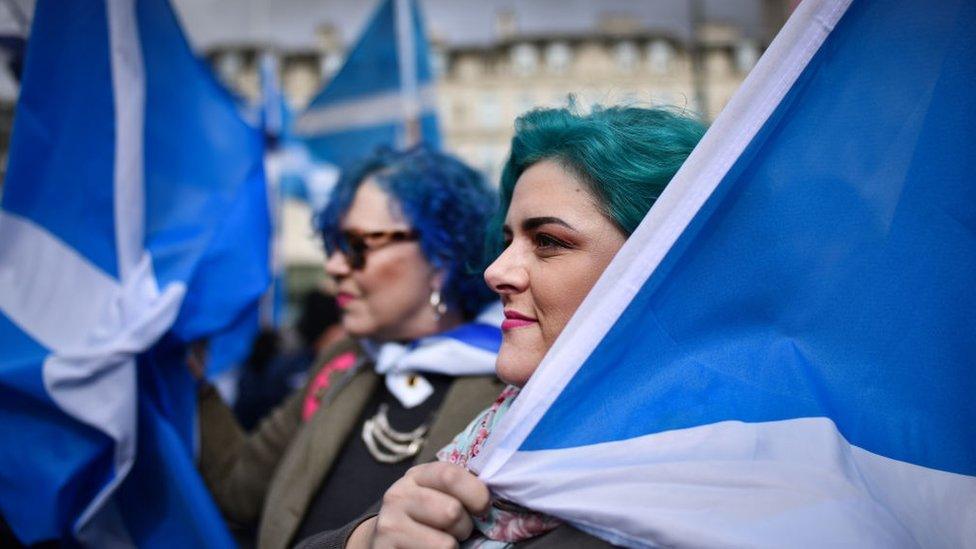Conservatives seek clarity on Holyrood's £20m for indyref
- Published
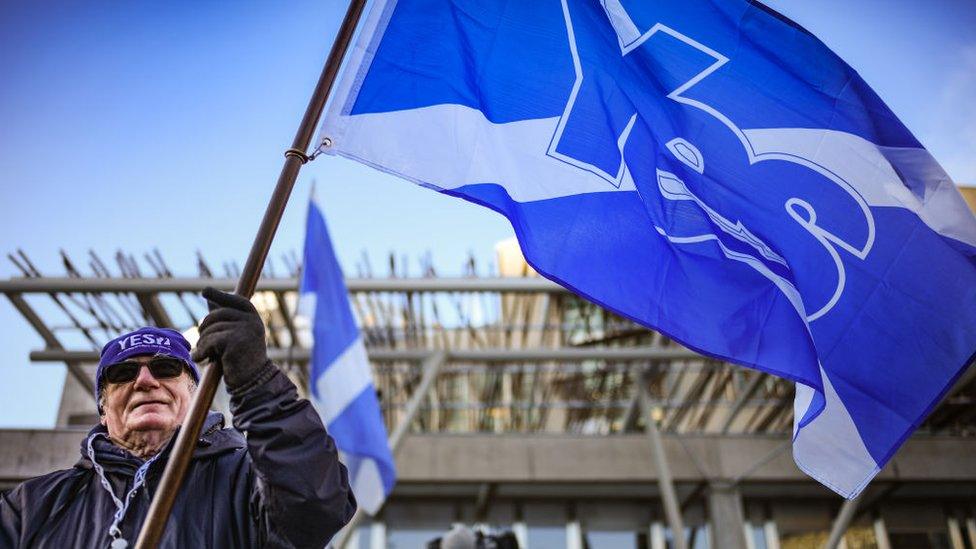
The Conservatives have written to the Scottish government's top civil servant to ask whether £20m should be spent on an independence referendum.
SNP plans to use the next general election as a "de facto" referendum were criticised by MSP Donald Cameron.
He claims civil servants should not be deployed on "party propaganda".
The Supreme Court last week ruled that Holyrood did not have the power to hold a fresh vote without Westminster's consent.
The Scottish government said the role of the civil service was to support the elected government in developing and implementing policies.
A spokesperson added: "In light of majority support within the Scottish Parliament for an independence referendum, Scottish ministers remain ready to engage with the UK government at any point on delivering that referendum.
"The Scottish government will also continue to set out, through the Building a New Scotland prospectus series, what could be done with the full powers of independence, reflecting its Programme for Government commitments."
First Minister Nicola Sturgeon wanted to hold a referendum on 19 October next year.
In May, the Scottish government allocated £20m to be spent on planning an independence referendum as part of its resource spending review.
But the Supreme Court ruled unanimously that she does not have the power to hold the vote without the UK government's consent, because the issue is reserved to Westminster.
Court president Lord Reed rejected the Scottish government's argument that any referendum would simply be "advisory" and would have no legal effect on the union, with people only being asked to give their opinion on whether or not Scotland should become an independent country.
Figures obtained by the Tories on Sunday revealed more than £1.5m of taxpayer cash would be spent on civil servant salaries who are tasked to work on the independence brief.
Following the Supreme Court judgement, Mr Cameron said he struggled to see any legal justification for ministers to spend the figure.
In his letter to permanent secretary John-Paul Marks, the Highlands and Islands MSP said he was seeking "urgent clarification" on whether this remained the position of the Scottish government.
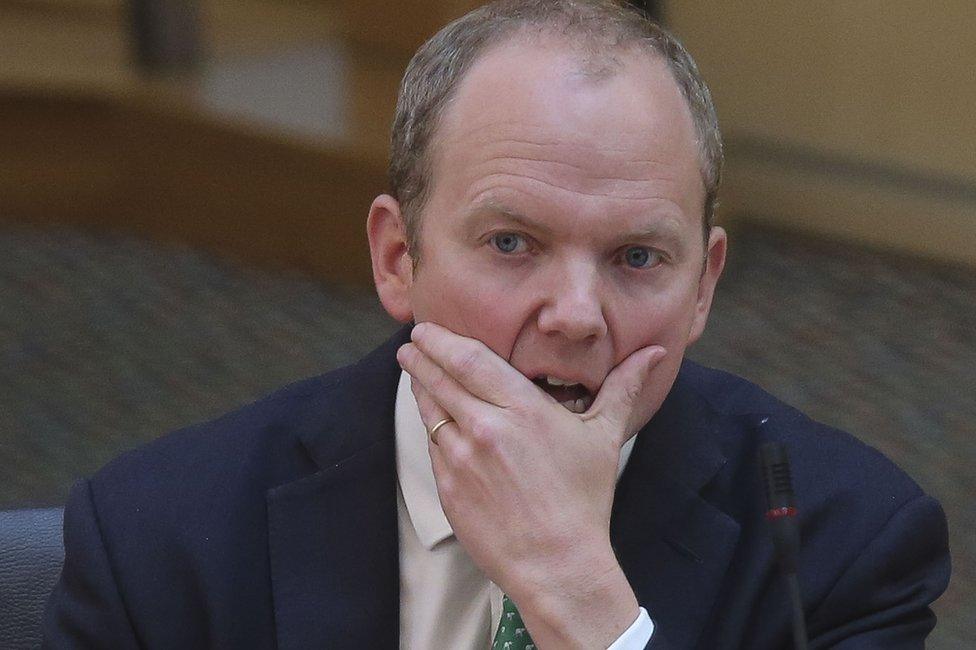
Conservative MSP Donald Cameron wrote to the Scottish government's top civil servant
He also urged Mr Marks to seek a ministerial direction to settle the matter.
In a statement, Mr Cameron added: "Nicola Sturgeon said her next step, after the Supreme Court's judgment, was to try to turn the next general election into a 'de facto referendum'.
"But that's SNP strategy as a party - not a Scottish government policy. There is no excuse for impartial civil servants to be deployed on party propaganda in this way, and no reason for taxpayers' money to be wasted on it.
"In the midst of a global cost of living crisis and huge cuts being imposed by the SNP on key public services, it's outrageous for ministers to spend money pushing for a referendum that most Scots don't want."
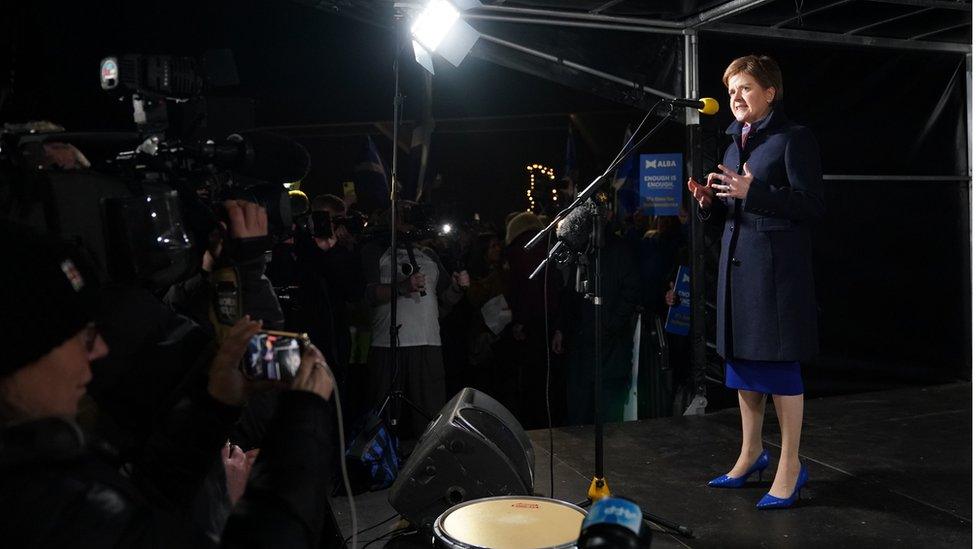
Nicola Sturgeon addressed a rally by independence supporters outside the Scottish Parliament on Wednesday evening
Ms Sturgeon has said she was disappointed but respected the ruling of the court, and stressed that the judges do not make the law and only interpret it.
The first minister told a media conference that a referendum remained her preferred option, but in the absence of an agreement the SNP would use the next UK general election as a "de facto referendum" in an attempt to demonstrate that a majority of people in Scotland support independence.
The "precise detail" of how this would work will now be a matter for the party to debate, she said, with a special conference to be held in the new year.
Recent opinion polls have suggested that the country is essentially split down the middle on the independence question, but with a very narrow majority in favour of staying in the UK.
However the SNP and Greens form a pro-independence majority in the Scottish Parliament.
- Published23 November 2022
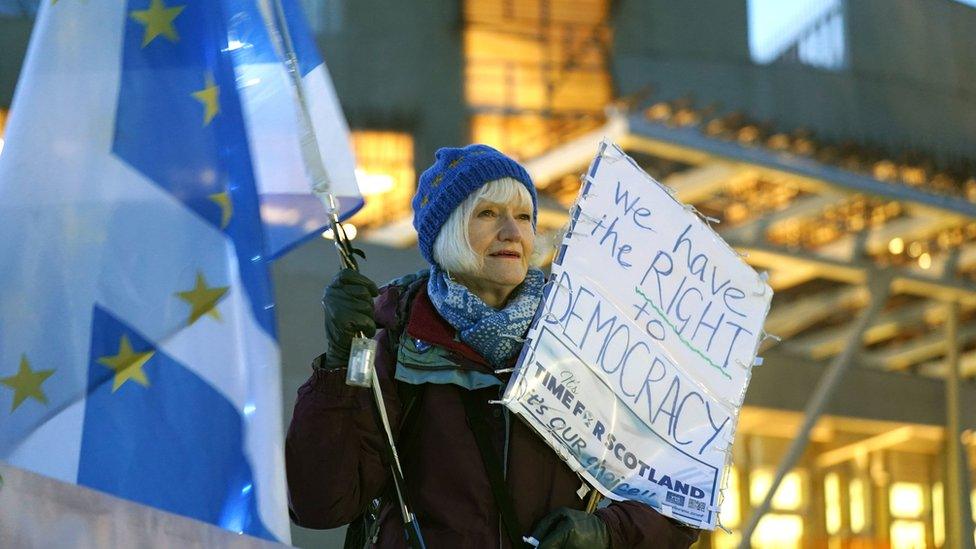
- Published23 November 2022
